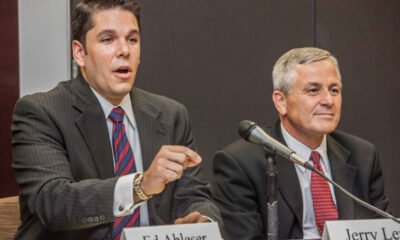Aaron Bean
GOP Lawmakers Target ‘Critical Race Theory’ in Fiery House Education Panel Debate

WASHINGTON — Tensions escalated among Republican lawmakers during a U.S. House education hearing on Wednesday, as they criticized what they termed “woke” curricula in schools. This hearing underscores the ongoing culture wars influencing public education policy.
The spotlight turned to “critical race theory,” which examines the social construction of race and has garnered significant backlash from GOP members across multiple states. Although this academic framework is primarily utilized in college and graduate programs, members of the U.S. House Subcommittee on Early Childhood, Elementary, and Secondary Education contended that it is infiltrating K-12 education.
The federal government’s limited role in K-12 curriculum, traditionally governed by state and district regulations, poses challenges for the House committee’s ability to enact any legislative measures on this topic.
Subcommittee Chairman Aaron Bean highlighted the adverse effects of the COVID-19 pandemic on educational performance. He questioned why educational institutions are focusing on race-related ideologies instead of addressing pandemic-related setbacks. “Critical race theory is now reshaping young people’s identities,” Bean stated, emphasizing its implications for societal perception.
In contrast, Rep. Jahana Hayes, a former public school history teacher, asserted that critical race theory was never a part of her educational training. “It is a legal theory taught in law school,” the Connecticut Democrat explained, expressing confusion over its relevance to K-12 discussions.
Ian Rowe, a senior fellow at the American Enterprise Institute, pointed to practical applications of critical race theory, citing instances where children are grouped based on race during educational activities. However, he did not provide specific examples of where these practices were implemented.
The focus then shifted to civics education, with Bean inviting panelists from various organizations dedicated to promoting an understanding of America’s founding principles. Civics education has become a contentious issue as the upcoming 2024 Republican Party platform calls for imparting a “love of country” through genuine civics education.
Jed Atkins, dean of the University of North Carolina’s School of Civic Life and Leadership, warned that many college students are markedly uninformed about democratic institutions, indicating a pressing need for systemic civic education.
Ranking member Suzanne Bonamici responded to the dialogue by emphasizing the importance of school infrastructure over the critical race theory debate. The Oregon Democrat praised legislation aimed at funding improvements in both physical and digital educational infrastructure, introduced by her Democratic colleagues.
Bonamici criticized the current state of many educational environments, asserting they are often unsafe and in dire need of repair. “Right now, far too many of these environments are outdated and desperate for improvements,” she declared.
Last updated 3:42 p.m., Dec. 4, 2024








![The entrance for Southwest Sod, as seen from the northeast corner of Porter and Steen Roads on May 9, 2025. [Monica D. Spencer]](https://arizonanews.org/wp-content/uploads/2025/05/Future-Development-Area-Cut-in-Half-Yet-House-Count-Remains-400x240.jpg)
![The entrance for Southwest Sod, as seen from the northeast corner of Porter and Steen Roads on May 9, 2025. [Monica D. Spencer]](https://arizonanews.org/wp-content/uploads/2025/05/Future-Development-Area-Cut-in-Half-Yet-House-Count-Remains-80x80.jpg)








